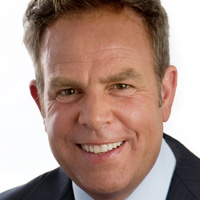If you're a parent, you probably remember first setting eyes on your new baby. Perhaps, it was awe-inspiring. New parents often find themselves awash in feelings of awe and joy. That's what we hear it should be like. Pure bliss. Baby bliss.
Then, reality sets in.
As weeks unfold, that can mean sleepless nights, and a screaming infant needing constant care whose desperate cries are often incomprehensible. And then, there's going to work exhausted, arguments with your partner, having no time for yourself, and worse, feeling guilty you're even wanting time for yourself.
That happened to Leslie, after Jack was born. Leslie had difficulty caring for Jack. In fact, Leslie had difficulty doing much of anything - including things that used to be fun. Normally quite competent, Leslie had trouble even making simple decisions. And rather than feeling happy about Jack, most of what Leslie felt was empty and blue.
If you've heard of postpartum depression, this story may sound typical. But there's something not so typical about this story - and that's that Leslie is a man.
Each day in the U.S., 3,000 new fathers become depressed in the three-to-six month period after their children are born. That's one in four new dads. But if you think this can't be true because postpartum depression is linked with hormonal changes, you may not know than men's hormones change too - both during pregnancy and after their babies are born. In fact, men's testosterone levels drop, while their female hormones rise. But just like for women, a lack of sleep is probably the biggest trigger for men's depression.
Sadly, these dads don't often get the help they need - which isn't good for them or their kids. In fact, a father's depression has a negative and long-term impact on the psychological, social and behavioral development of his children.
Because men are taught to be tough and self-reliant, it can be hard to ask for help. But it's the best thing a depressed dad can do - get help. And it's good not just for him, but for the long-term health of his child.
With a Perspective, this is Dr. Will Courtenay.
Dr. Will Courtenay is an East Bay psychotherapist specializing in the treatment of men and boys.
